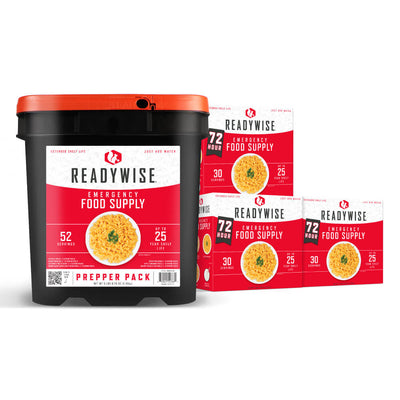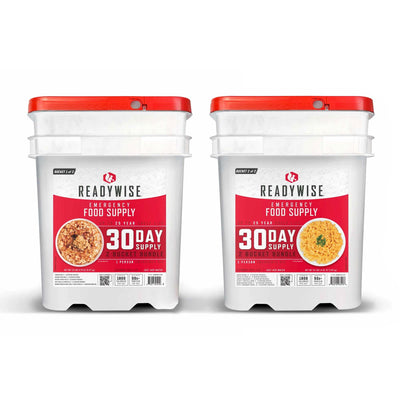What Does “Survival” Mean to You?
When it comes to the topic of survival, one quickly discovers there are many differing interpretations as to the meaning of the word itself, let along how to actually deal with surviving. You see, there are those who are just trying to survive from paycheck to paycheck, or others who are trying to survive a bad marriage or relationship. Then there are those who may be struggling with surviving a difficult college class or working for a harsh employer. We have all dealt with a wide variety of challenges in our lives where survival was the end goal.
But the survival I want to talk about is far more basic and intense. I’m talking about surviving the threat of death itself. My heart goes out to the struggling people of Venezuela who are currently in a fight for survival and life. I came across an article that describes to a small extent their fight for survival.
“Residents tell of children starving to death, of forming human chains to block roads to hijack trucks just to get food. They tell of hiding provisions – toilet paper even – in cemeteries, and of concealing their supplies in buckets under layers of trash. They tell of being prisoners in their own homes, frightened to leave for fear of looters, who don’t come for their televisions and computers – no one wants those any more – but for basic foodstuffs and medicine.”
It’s hard to comprehend such unbearable living conditions. Could this ever happen to us? If so, how do we prepare to insure our own survival?
There's something empowering about feeling like you can handle extreme survival scenarios. One way is to “War Game” different scenarios and think outside the box as to how one would survive.
It's been somewhat of a tradition when the guys in our family get together to go hunting or camping, as we sit around the campfire, we get a kick out of creating some ridiculously extreme survival scenario with choices that need to be made and why any particular decision would make survival sense.
Here's a typical scenario: You are hundreds of miles away from any city or people and need to survive long enough to escape the wilderness and return to civilization. You are naked (I told you these were extreme made-up conditions) and can choose only one item to have with you - shoes, matches or a knife. What would you choose and why?
Usually there are follow up qualifying questions such as, "What time of the year is it?" or "What is the temperature - is there snow on the ground?" or "Are there lakes, rivers or streams in the area?" or “Do the shoes have laces?” or “How many matches would I have?”
These are indeed important qualifying questions as surviving may require different techniques depending on the weather, terrain and surrounding conditions.
There's always a lively discussion that ensues with differing opinions as to why any given item might prove more valuable than another. There are always valid reasons to backup any particular choice and there never is just one right answer, but there are some time tested truths that one cannot ignore if survival is the goal.
It's known as "The Rule of Three"
When it comes to survival, it can be reduced to “The Rule of Three”. You may be military, firefighter, law enforcement, rescue worker or just plain folk with an inordinate amount of common sense. Regardless, it never hurts to revisit the basics. And all of the basics can be summed up in ”The Rule of Three” which says, absent sudden death (such as an accident) or terminal illness, your survival is generally contingent upon you not exceeding:
3 minutes without breathing (drowning, asphyxiation)
3 hours without shelter in an extreme environment (exposure)
3 days without water (dehydration)
3 weeks without food (starvation)
Let’s start with 3 weeks and move toward 3 minutes.
Starvation
Most prepper’s are stocking food. You will note that starvation is the slowest form of death among the Rule of Three. You would likely have three weeks before you starve. Your level of physical exertion has an impact on the body‘s caloric requirements. Personally, I might survive starvation for five or six weeks as I‘m carrying a lot of extra weight (just in case!). Don‘t call me over weight, call me prepped! Keep in mind, your survival strategy must consider the likelihood of you being separated from your food supply in an emergency. When that happens, stay calm, focus on any immediate threats or hazards and remember that you have three weeks to implement Food Plan B or Plan C. You do have a Food Plan B and Plan C, don‘t you?
Dehydration
Dehydration occurs much more quickly than starvation. As such, water supply is much more critical to address in an emergency. Consider that in a temperate climate and without exertion, the human body requires approximately 2.5 liters of fluids per day. In extreme heat this requirement goes up significantly. Diarrhea can lead to rapid, catastrophic dehydration as well. Given that water is far bulkier to store and/or transport than food, and that dehydration is potentially a far more pressing concern than starvation, your ability to procure water in an emergency should supplant food in your ranking of survival priorities. Stated simply, water is far more important than food. What is your home-base plan for water? What is your mobile plan for water?
Exposure
Exposure occurs far more rapidly than dehydration. Hot or cold, you could find yourself unable to function in less than three hours. Immersion in cold water, such as breaking through ice, could reduce your time to act down to mere minutes. So what‘s your shelter strategy when you‘re away from home-base? In the north, temperatures can fall to minus 40 F in the winter. If you have an accident on a slick road late at night in such conditions, you will likely not be waking up ever again unless you have prepared for such an eventuality. Exposure kills in hours, or less. Countering exposure is your number two priority for survival in any emergency situation. Yet most preppers are not thinking about exposure while stocking their pantries. Prepare for exposure.
Asphyxiation
Asphyxiation kills in three minutes. This is the emergency situation that gives you the least amount of time to react for your survival. This is your Priority One survival issue. An interior fire is the most common cause of asphyxiation. Do you have a home escape plan in the event of a fire? If not, make one – it might save your life. Unless you‘ve been in a burning building, I guarantee that you cannot imagine how blinding the smoke is nor how quickly a structure can become fully engulfed. If you have children, periodic rehearsal of the escape plan is mandatory. In the unthinkable event of a fire, panic is inevitable. Rehearsal helps to moderate the flight reaction, which might otherwise lead to death.
While fire is a common cause, there are other causes of asphyxiation worth your consideration such as carbon monoxide poisoning – usually from a combustion source in the home. This has also occurred in vehicles stranded in snowstorms. Vehicles were left running so the heaters would work and accumulating snow shrouded the tailpipe resulting in vehicle exhaust entering the passenger compartment.
Other poisonous fumes can cause asphyxiation as well. Tanker trucks, rail cars, chemical and other industrial plants often have hazardous materials that, in an emergency situation, could cause you grave bodily harm if exposed.
Take some time with your family and review “The Rule of Three” as it might relate to a variety of emergency situations. Assuring our families have the understanding and skills necessary to survive life threatening occurrences will provide peace of mind that we’ve done what matters most as we continue with our life-long process of being prepared.
Source: https://www.irinnews.org/special-report/2018/11/21/hunger-and-survival-venezuela
Author bio:
Taylor Abegg has been in the preparedness industry for more than 35 years helping customers with their needs.
















































































